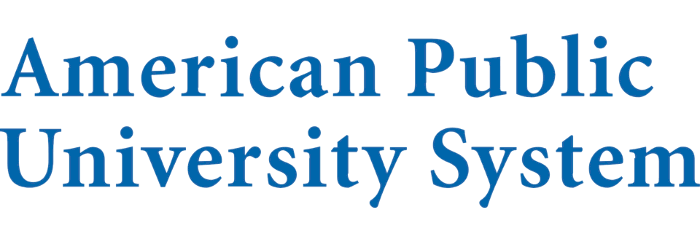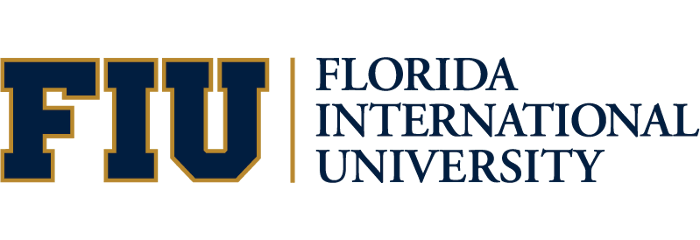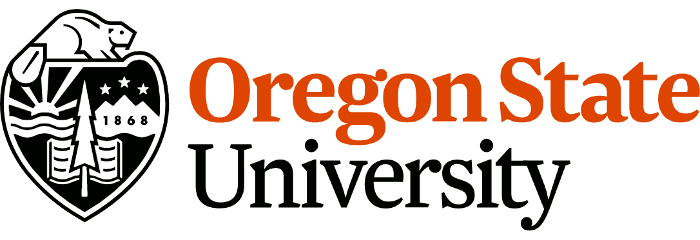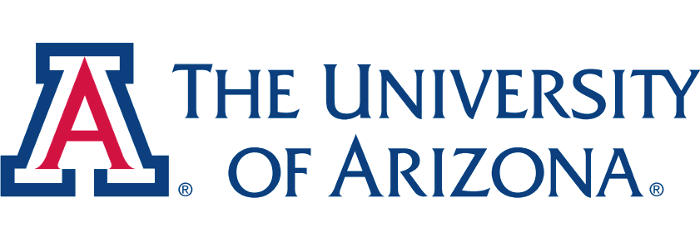2023 Best Online Biology Degrees
ON THIS PAGE
Overview Courses RequirementsFinancial Aid Careers Worth It
An online bachelor's degree in biology provides a convenient and flexible way for students to build a foundation of knowledge in the biological sciences, including areas such as cell biology, human anatomy, genetics, microbiology, and chemistry. Earning a degree can also be a gateway to many in-demand careers in fields such as nursing, pharmacology, ecology, research, and secondary teaching.
An online bachelor's degree in environmental science can provide similar outcomes because the practices and application of biology and environmental science knowledge overlap significantly. However, this degree may interest students who are most passionate about protecting the environment and its vulnerable biological resources.
We've ranked programs by online enrollment so you can see which are most popular. View our methodology for more details about our list, or learn more about OnlineU.
ADVERTISEMENT
Online Biology Bachelor's Degrees You May Be Interested In

Arizona State University

Southern New Hampshire University Online
Annual Tuition: $9,600
2 Programs (view all)

Western Governors University
List Of Accredited Online Biology Schools
| School | Online Enrollment | Annual Tuition |
|---|---|---|
| Southern New Hampshire University Online | ||
| American Public University System | 37,335 | $7,324 |
| Arizona State University | 33,410 | $24,413 |
| Florida International University | 10,922 | $18,963 |
| Oregon State University | 5,999 | $31,215 |
| University of Arizona | 2,558 | $11,800 |
| Washington State University | 2,437 | $26,419 |
| University of Florida | 1,029 | $28,659 |
| Kean University | 552 | $19,771 |
| Florida National University-Main Campus | 412 | $13,688 |
| Logan University | 236 | $6,650 |
| Prescott College | 167 | $32,553 |
| Life University | 29 | $13,101 |
Southern New Hampshire University Online
- Annual Tuition: $9,600
- Locations: Manchester (NH)
- Accreditation: NECHE
Southern New Hampshire University Online (SNHU) is a public institution offering an online Bachelor of Science in Environmental Science for students who want to study Earth's environmental crises and their collective impact on biological resources. Concentrations include Data Analytics in Science and National Resources and Conservation. This 121-credit program generally takes full-time students four years to complete. Similarly, students may opt for SNHU's online Bachelor of Science in Geosciences - Natural Resources and Conservation. Overall, SNHU has a 94% acceptance rate and a 40% graduation rate.
SNHU uses Brightspace to deliver its online environmental science curriculum, which includes courses such as Geology, Global Climate Change, Energy and Society, and General Biology. Coursework can help prepare students for certification, licensure, and a wide range of careers — from environmental scientists and conservation land managers to park rangers and climate change analysts.
American Public University System
- Annual Tuition: $7,324
- Locations: Charles Town (WV)
- Accreditation: HLC
American Public University System (APU) is a private, for-profit institution offering an online Bachelor of Science in Natural Sciences to help students build a solid foundation in biology, chemistry, physics, mathematics, and earth science. Concentrations include Biology and Earth Science. Graduating requires completing 120 credit hours, which may take four years of full-time enrollment. APU accepts 100% of applicants, and 18% of students graduate with their degrees.
APU delivers online coursework and instruction via Brightspace. Distance learners in the online natural sciences program enroll in classes, such as Physical Geography, General Biology, Calculus, and Elements of Physics. Students must also complete an independent study or a senior seminar to graduate. This program also meets National Science Teachers Association requirements for secondary science education.
Arizona State University
- Annual Tuition: $24,413
- Locations: Tempe (AZ) (and 4 others)
- Accreditation: HLC
Arizona State University (ASU) is a public institution that offers a Bachelor of Science in Biological Sciences, which is available for students to take online. In general, this program is designed to cover the various branches of biology, including genetics, botany, microbiology, and environmental science. It's 120 credit hours, the standard amount required for most bachelor's degrees, and the online degree program consists of 39 classes that each take about seven and a half weeks to finish. At ASU, the acceptance rate among applicants is 73%, and the school's graduation rate is 52%. This means that more than half of students graduate with their degrees.
Through ASU Online's biological sciences program, you'll take key courses online — such as Evolution, General Genetics, and Calculus for Life Sciences — through Canvas, an industry-leading learning software. However, there are some in-person requirements, such as a 1-week organic chemistry lab during the summer that takes place on campus. Graduates of this online bachelor's degree enter a wide range of professions due to the broad nature of the subject material, ranging from professors and scientists to dentists, pharmacists, and veterinarians.
Florida International University
- Annual Tuition: $18,963
- Locations: Miami (FL)
- Accreditation: SACS COC
Florida International University (FIU) — a large, public institution — offers a fully online Bachelor of Arts in Biological Sciences totaling 120 credit hours. The program includes tracks (or concentrations), such as (1) Quantifying Biology in the Classroom (QBIC), (2) Marine Biology, and (3) Biology Education (FIUteach). Sample core courses include General Biology I, Biology Career Planning, and Cellular Chemistry.
At FIU, students complete coursework synchronously on Canvas. Online support for students include success coaching and tutoring. In addition, prospective students must submit an online application, ACT or SAT scores, and official high school transcripts.
Oregon State University
- Annual Tuition: $31,215
- Locations: Corvallis (OR)
- Accreditation: NWCCU
Oregon State University (OSU) is a large, public institution offering several online Bachelor of Science programs: a (1) Bachelor of Science in Botany, (2) Bachelor of Science in Environmental Sciences (with an optional Aquatic Biology concentration), and (3) Bachelor of Science in Zoology. Each program requires 180 credit hours to complete and covers various biological sciences specialties for students to pursue. All three program curriculums cover different topics, such as chemistry, ecology, and genetics.
OSU’s online students must complete coursework in synchronous and asynchronous formats on Canvas. Student resources at OSU are success coaching, tutoring, technical help, and more. OSU’s admission requirements include an application and official high school or college transcripts.
University of Arizona
- Annual Tuition: $11,800
- Locations: Tucson (AZ)
- Accreditation: HLC
The University of Arizona (UArizona) is a large, public institution offering an online Bachelor of Science in Biology that consists of 120 credit hours. The program also has several emphases students can choose from, such as Biomedical Sciences and Organismal Biology. Overall, UArizona accepts 85% of applicants and has a 64% graduation rate.
UArizona delivers coursework virtually to students through the online learning management system, D2L. The program's sample core courses include Ecology, Foundations in Biochemistry, and Genetics. In addition to online classes, the institution has other remote student support services, including tutoring, academic success specialists, librarian consultations, and disability resources. UArizona’s admission requirements include submitting an application and official transcripts.
Washington State University
- Annual Tuition: $26,419
- Locations: Pullman (WA)
- Accreditation: NWCCU
Washington State University (WSU) is a public institution that offers a Bachelor of Science in Biology requiring 120 credit hours. This online degree program covers molecular biology, physiology, plant development, and cell biology. Overall, WSU accepts 80% of applicants, while 65% of students end up graduating.
At WSU, students can submit coursework in an asynchronous format on Canvas, a popular digital learning platform. In addition to online classes, career advising, academic advising, tech assistance, and tutoring are some of WSU’s student support services. Admission requirements include completing a minimum of 19 semester credit hours of biology classes as well as an additional 21 credit hours of biological sciences. Prospective industries that graduates may decide to work in include research centers, hospitals, and wildlife rescue centers, to name a few.
University of Florida
- Annual Tuition: $28,659
- Locations: Gainesville (FL)
- Accreditation: SACS COC
The University of Florida (UF) is a large, public university offering two fully online biology programs: (1) Bachelor of Arts in Biology and (2) Bachelor of Science in Microbiology and Cell Science. Each program totals 120 credit hours, which generally takes most students around four years to complete. UF has an 88% graduation rate, but it's a competitive university to get into, with a 31% acceptance rate.
UF allows online students to complete coursework asynchronously on Canvas. Online student support at UF includes academic advising, career planning, and counseling. Potential job roles for graduates of both programs include a pharmacist’s assistant, biometrician, and conservation biologist. Admission requirements for both programs include submitting an online application, having an overall minimum GPA of 2.5 for transferable college credits, and completing prerequisites with a grade of C or higher.
Kean University
- Annual Tuition: $19,771
- Locations: Union (NJ)
- Accreditation: MSCHE
At Kean University, a public institution, students can pursue an online Bachelor of Arts in Biology or a Bachelor of Science in Biology. Both programs — which require 120 credit hours each to complete — immerse students in research and travel opportunities to prepare them for careers in the national sciences or beyond. Currently, Kean has an acceptance rate of 78% and a graduation rate of 59%.
Online students at Kean complete coursework on the learning management platform Blackboard. Sample coursework includes Zoology Form and Function, Intro to Environmental Science, and Principles of Genetics. Student services include disability support and counseling. Kean’s general admission requirements include submitting an application, official transcripts, and ACT or SAT scores.
Online Bachelor's Degrees in Biology
Online bachelor's degrees in biology are designed to prepare students for careers in the biological sciences by building a strong foundation in cellular, ecological, evolutionary, molecular, and organismal biology. Many students choose to major in biology because they are planning to go into a medical field, such as veterinary medicine, pharmacology, or nursing. In some online programs, students can choose to specialize in one particular area of biology. Students may increase their future job prospects by gaining laboratory experience through internships in a biological, medical, research, or other approved facility.
The bachelor’s curriculum for an online biology degree combines content from biology, biochemistry, and chemistry, and it usually requires the completion of a capstone course. Core coursework for a biology major covers topics such as anatomy and physiology, cell and molecular biology, and organic chemistry. Prerequisites often include calculus, physics, and statistics. There are also electives offered in various subject areas, such as psychology and physiology. Students can choose to structure their degree program in a way that leads to graduate study.
Online bachelor's degrees in biology are designed to prepare students for careers in the biological sciences by building a strong foundation in cellular, ecological, evolutionary, molecular, and organismal biology.
How Long Does It Take To Earn a Biology Degree Online?
Online biology programs are designed to be completed in four years of full-time study, although many students take longer. Whether students are pursuing a Bachelor of Science or Bachelor of Arts in Biology, they will generally need to complete 120-126 credit hours. Typically, half of these credits are for general education courses and the other half are for biology courses.
Students may find it helpful to look at the graduation rates for individual schools and programs to gauge how long it might take to earn their degree.
These rates indicate how many students graduate within a given time frame. Many graduation rates measure how many students have completed their degree after 6 years of enrolling in a bachelor's program. You can look for this information on individual school websites or by using the National Center for Education Statistics' College Navigator tool.
Which Is Better — a Bachelor of Arts or a Bachelor of Science in Biology?
The right choice depends on your career goals and interests.
While focused on biology, a BA also includes liberal arts classes. If you aren’t sure what you want to do with your degree, this may be a better choice for you, as the skills learned will be applicable in a wide range of careers.
A BS is more focused on science and math classes. This educational pathway would be helpful preparation if you are interested in a technical or specified career path, such as a medical field.
Applying to an Online Biology Program
The admission requirements and application process for bachelor's in biology programs are the same whether a student plans to take on-campus or online courses or some combination of the two.
Some colleges require applicants to have completed a few prerequisite courses before enrolling in a biology program. The prerequisites vary by school, but may include natural sciences, calculus, physics, English, and history. Students are often required to have a minimum 2.0 GPA in these courses to qualify. Additionally, some schools require new enrollees to take placement exams before registering for courses.
To apply to an online biology program, applicants must submit In summary, colleges may request the following items:
- An application form (and often an application fee)
- Official high school transcripts showing a minimum 2.5 GPA
- Official college transcripts (if applicable)
- Test scores from standardized tests, such as the SAT or ACT
- One or more letters of recommendation
- An essay or personal statement
- A list of extracurricular activities and jobs, especially leadership positions
Common Courses in Online Biology Programs
Most biology programs encompass a wide range of fields and disciplines, from humanities courses — such as speech communication and world literature — to math courses, including calculus and statistics. In addition to a core set of biology courses in these programs, most feature electives such as microbiology, botany, or zoology. Students graduate with a number of valuable skills in communication, research, and analysis.
Below are some of the most common biology courses in a bachelor's degree program, whether online or in-person:
General Biology
In this introductory course — typically the first in any biology program — students are given a broad overview of life and living organisms. After learning how all organisms are made up of cells, students explore how hereditary information is encoded in genes. Of particular interest is the role of genes in the human body and how they influence our health and lifespan.
Evolution
This course examines the history and development of plants, animals, and single-celled organisms. Some of the topics covered include patterns of biological diversity, genome sequencing, animal behavior, and natural selection. Students learn how species interact within ecosystems and how environmental factors can affect evolution.
Organic Chemistry
Building upon knowledge obtained in a general biology course, students explore the molecular structure of cells. Additionally, students learn about the properties, reactions, and preparation of the carbon-containing compounds produced by living organisms.
Organic Chemistry or General Biology Lab
Biology programs often include hands-on lab courses in biology, chemistry, or both. They give students the opportunity to observe, experience, and experiment with scientific phenomena. In the online environment, students engage in experiments by conducting them at home using everyday objects or lab kits — typically available from the school for a fee — or by watching simulations or online demonstrations.
Physics
This course explores the most basic study of physical science. Coursework covers the structure of matter, how objects interact, and how energy and various types of force influence the way matter moves and behaves. Students learn to consider objects from both a macroscopic and submicroscopic level to try to understand scientific phenomena.
Career Opportunities for Biology Graduates
Although biology is a flexible major that can lead you to pursue a number of different directions, many students opt for careers in the health and medical field or education. After earning bachelor's degrees in biology, graduates can move directly into the workforce or continue working toward advanced degrees, such as a Master of Science in Biology, a Master of Education with a biology focus, or a Master of Environmental Science, to name a few options.
The Bureau of Labor Statistics (BLS) provides a wealth of information on biology careers, and we list a few of the most popular biology jobs below:
These professionals, who typically hold bachelor's degrees, can be found working in hospitals and other health care facilities. Using specialized equipment, they analyze and conduct tests on samples of body fluids or tissue to help determine patients' health status.
Biology graduates who go on to complete a doctoral program in one of the sciences can become medical scientists. These professionals find work in research facilities at corporations, universities, and hospitals, where they conduct various types of research projects designed to improve human health.
Biological technicians usually hold bachelor’s degrees. They may work with wildlife biologists, medical researchers, or in the private industry to analyze experimental data, administer new medicines to test subjects, and monitor production processes. Biological technicians use both traditional laboratory equipment and specialized computer software to collect, analyze, and model data.
These professionals, who typically hold bachelor's degrees, work to protect species from threats, predict the spread of diseases, and study ecosystems. Zoologists usually work with a specific type of animal, while wildlife biologists study specific ecosystems and/or animal populations.
Is an Online Biology Degree Worth It?
Deciding whether to pursue an online bachelor’s degree in biology requires careful consideration. Prospective students may want to examine some of the specific advantages and disadvantages:
Potential Benefits
This is a versatile degree. Pursuing a bachelor's degree in biology helps students develop valuable skills, such as critical thinking, analysis, and communication, which are useful in many fields beyond health care and science.
Careers in biology-related fields are growing. Holding a bachelor’s degree in biology can lead to a higher-than-average chance of employment. Of the top 10 career fields individuals with a bachelor’s degree enter, seven have a higher than average growth expectation. The median salary for biology-related fields is $65,000 which is also higher than average.
Online biology programs can be convenient. Studying biology online allows students to enroll in the best program that fits their academic interests and financial needs without having to move to a different location.
Potential Drawbacks
A bachelor's degree may have limitations compared to more advanced degrees in this field. A fairly high number of biology professionals — 58%, according to the BLS — have earned advanced degrees so graduates may need to consider earning at least a master's degree to be competitive in this field.
Online programs can be isolating. For some students, online programs can cause them to feel isolated from classmates and instructors. This means they may have to work harder to connect with others through online discussion forums.
It may be harder to work or perform research during the COVID-19 pandemic, which society will be struggling with for decades to come.According to a 2020 research study by Genome Biology, 77% of institutions were shut down during the beginning of the pandemic and 49% of scientists reported their research was slowed down. New and improved online collaborative platforms have made working and researching from home easier, but there are still drawbacks to travel restrictions and the dangers of in-person experiments.
Students also need to factor in their own personal circumstances, such as budget constraints and work and family obligations. Ultimately, individuals must decide for themselves whether the benefits they expect to receive from earning a biology degree are worth the investment of time, money, and energy.
Accreditation
Students pursuing online degrees in biology should ensure the schools they're considering are accredited. For an institution of higher education, accreditation occurs when all of the college's programs, faculty, and student resources are evaluated and approved by an independent agency that has been sanctioned by the Council for Higher Education Accreditation or the U.S. Department of Education. Individual programs within a school can also be accredited by other approved agencies, and some biology programs have earned this additional programmatic accreditation from the American Society for Microchemistry and Molecular Biology.
Choosing an accredited program offers three main benefits:
1
Perhaps most important, accreditation assures students they're enrolled in a credible online degree program that meets high standards for quality and academic rigor.
2
Enrollment in an accredited school is also a requirement to qualify for financial aid and for acceptance into most graduate programs.
3
Finally, depending on a student's career path, it may be a requirement for obtaining licensure.
Related Articles
2023 Best Online Biology Master's Degree Programs
View rankings of the best online master's in biology programs for 2023 with data on tuition, salary, debt, and return on investment.
By OnlineU Staff Writers | 12/16/2022







